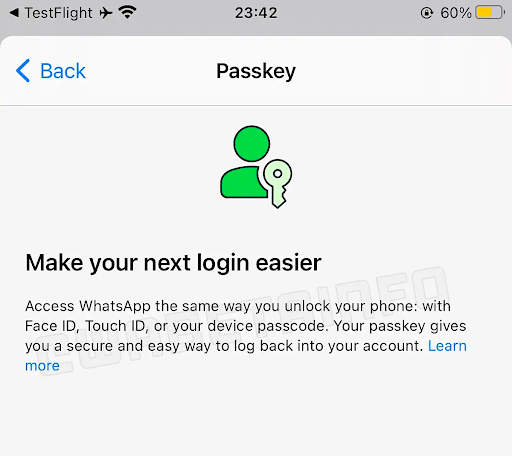WhatsApp on iPhone to Get Secure Passkey Login Soon
WhatsApp is finally bringing** passkey support **to iPhones! This means you'll soon be able to ditch weak passwords and log in using secure face or fingerprint biometrics instead.
This news comes after Android users enjoyed this feature for some time, and reports suggest it's on the way to iPhones with the upcoming iOS 17 update.
What are Passkeys?
Passkeys are a new, more secure way to log in to online accounts. Developed by Apple, Google, and Microsoft, they eliminate the need for traditional passwords and offer improved security against phishing and hacking.
How Will It Work on iPhones?
With the new update, you'll be able to set up a passkey for WhatsApp during installation or when reinstalling the app. Simply use Face ID or Touch ID to confirm, and you're good to go!
Benefits of Passkeys:
- Enhanced Security: Say goodbye to remembering complex passwords and the risks of phishing attacks.
- Convenience: No more typing in passwords, just a quick biometric scan and you're in.
- Cross-Device Compatibility: Works seamlessly across all your Apple devices signed in with the same iCloud account.
When Can We Expect It?
While the feature isn't officially live yet, the presence of a dedicated passkey menu in the latest iOS beta version indicates it's coming soon. Stay tuned for further updates!

